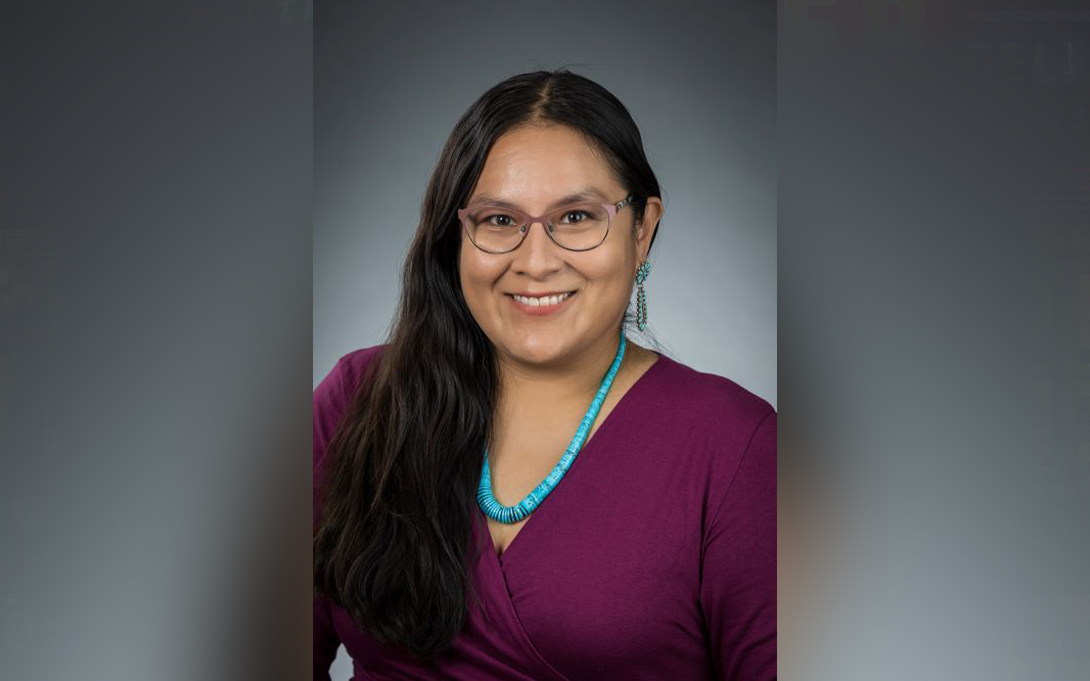
Indigenous DNA and data: Community approaches to equity in genomics and health
Speaker
Dr. Krystal TsosieDate & time
Location

Join us for a conversation on community-engaged research and paths forward that center Indigenous people as the agents of access for their own genomic and health data with Krystal Tsosie, an Indigenous geneticist-bioethicist and assistant professor in the School of Life Sciences at Arizona State University, and Jody Platt, an associate professor of Learning Health Sciences at the U-M Medical School.
Do you have any questions for our speakers? Email [email protected].
From the speakers' bios
Krystal Tsosie (Diné/Navajo Nation), PhD, MPH, MA, is an Indigenous geneticist-bioethicist and assistant professor in the School of Life Sciences at Arizona State University. As an advocate for Indigenous genomic data sovereignty, she co-founded the first US Indigenous-led biobank, a 501c3 nonprofit research institution called the Native BioData Consortium.
Her research can be encapsulated in two main foci: Indigenous population genetics and bioethics. In particular, she focuses on bioethical engagement of Indigenous communities in genomics and data science to build trust. As a whole, her interest is in integrating genomic and data approaches to assess Indigenous variation contributing to health inequities.
She began her research career at the laboratory bench, where she developed and patented a combined targeted ultrasound imaging and chemotherapeutic drug delivery device for treating early metastases in cancer. Upon seeing the disparities in emerging genomics technologies, she switched fields to genetic epidemiology, public health, and bioethics. Her first Master of Arts in bioethics at Arizona State University focused on the cultural implications of genetics in Native American communities. She added biostatistical knowledge and computational programming in large genomics datasets during her second master’s—in public health (genetic epidemiology)—at Vanderbilt University, where she studied disparities in uterine fibroids in African American women. She has co-led an ongoing longitudinal genetics study in a North Dakota Tribal community.
Her research and educational endeavors have received increasing national and international media attention as scientists worldwide are understanding the importance of equitable, community-based engagement models and the importance of Indigenous genomic data sovereignty. Her work has been covered by popular media outlets including PBS NOVA, The Washington Post, NPR, New York Times, The Atlantic, Forbes, and Boston Globe. She currently serves on the Government Policy and Advocacy Committee for the American Society of Human Genetics and the National Academy of Medicine Announces Committee on Emerging Science, Technology, and Innovation. She is a current global chair in ENRICH (Equity for Indigenous Research and Innovation Coordinating Hub), which focuses on enhancing Indigenous rights to develop, control, and govern Indigenous data and supports participation in STEM and in digitally‐enabled futures.
Jody Platt, Ph.D., MPH is an Associate Professor of Learning Health Sciences trained in medical sociology and health policy. She is widely published in trust in informatics and information systems. Her research focuses on and addresses ethical and policy issues raised by using the health information of individuals into “Big Data” and data analytics such as Artificial Intelligence and Machine Learning. She is interested in understanding what makes health information systems trustworthy and trusted by diverse stakeholders and interdisciplinary teams. She is motivated by the goal of serving people and institutions in their mission to become sustainable partners in the care ecosystem.
She is the Senior Scholar in Residence at Academy Health contributing to their work on trust in health. She has been the Principal Investigator on grants funded by the National Institutes of Health (NCI and NIBIB) and the American Board of Internal Medicine Foundation. She holds a Ph.D. and M.P.H from the University of Michigan School of Public Health.
Cosponsors
Center for Bioethics and Social Sciences in Medicine; Science, Technology and Society Program; Center for Racial Justice; InSPIRE Rackham Interdisciplinary Workshop; Precision Health; the Life Sciences Institute; and the University of Michigan ELSI Research Training Program
Have any questions?
